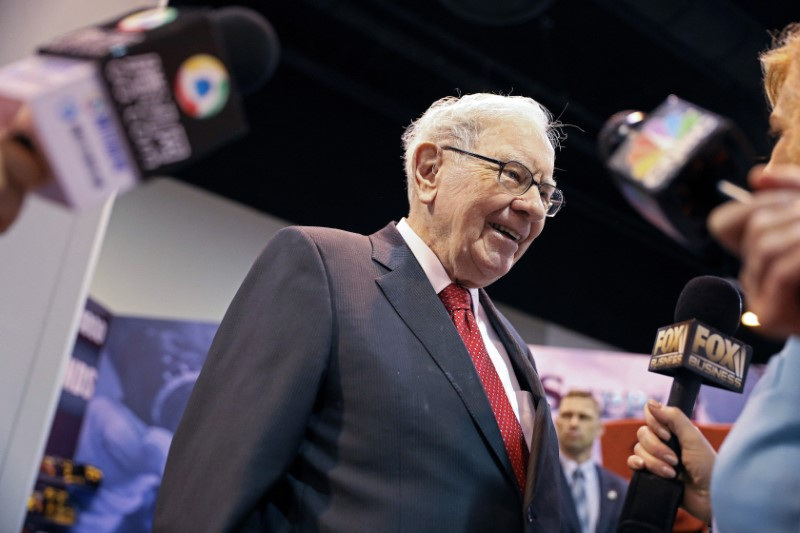By Jonathan Stempel and Koh Gui Qing
OMAHA, Nebraska (Reuters) - A longtime Berkshire Hathaway (NYSE:BRKa) director said Greg Abel, who is expected to succeed Warren Buffett as chief executive, may not get the same leeway from the conglomerate's board of directors to make acquisitions.
Ronald Olson, a Berkshire director since 1997, said at an investing conference on Thursday that the board would not "handcuff" Abel from making acquisitions, in his expected role in allocating Berkshire's capital.
But he also said Abel's recent handling of difficult litigation against the billionaire Haslam family over the acquisition of truck stop chain Pilot Travel Centers cemented confidence in his leadership. It was the first time Olson, a lawyer, said he worked closely with Abel.
"There (are) going to be changes in terms of the confidence level that we had in Warren," Olson said when asked if Abel would have the same latitude as Buffett to spend cash as he saw fit. "I don't know how changes will evolve when somebody replaces Warren. Let's not get too anxious about it. He's going to be around for a while. But once that happens, there may well be changes."
At Berkshire's annual meeting on Saturday, Buffett and Abel are likely to get shareholder questions about the conglomerate's future after Abel takes over.
Succession at Berkshire has long been on investors' minds as Buffett aged, working at least two decades past when most top executives retire.
Those concerns grew after his longtime second-in-command Charlie Munger died in November at age 99.
Berkshire acknowledged that Abel was Buffett's successor-in-waiting after Munger let slip at Berkshire's 2021 annual meeting when discussing Berkshire's decentralized, hands-off business model that "Greg will keep the culture."
Abel, 61, has since 2018 been a vice chairman overseeing Berkshire's non-insurance businesses including the BNSF railroad and Berkshire Hathaway Energy, his former home.
After Buffett leaves, his son Howard Buffett is expected to become nonexecutive chairman, while others would handle common stock investments.
The dispute with the Haslams, including Cleveland Browns owner Jimmy Haslam, centered on how much Berkshire should pay for the 20% of Pilot it didn't already own.
In competing lawsuits, each side accused the other of manipulating Pilot's accounting in bad faith, with the Haslams saying Berkshire was undervaluing its stake, and Berkshire concerned it might overpay.
Tensions had been rising earlier, after Berkshire took an 80% stake and replaced top Pilot management.
Buffett tasked Abel to sort out the issue, and Olson said "it was not pleasant going through the litigation."
But both sides settled in January, and Berkshire paid $2.6 billion for the final 20% of Pilot.

"That was a problem that Warren put in Greg's lap," Olson said. "His preparation and thinking was impressive. He is strategic in his thinking, and he is decisive in his judgment."
Berkshire also owns several insurers including Geico, the BNSF railroad, a slew of industrial and retail businesses, and hundreds of billions of dollars of stocks including Apple (NASDAQ:AAPL) and Bank of America (NYSE:BAC).